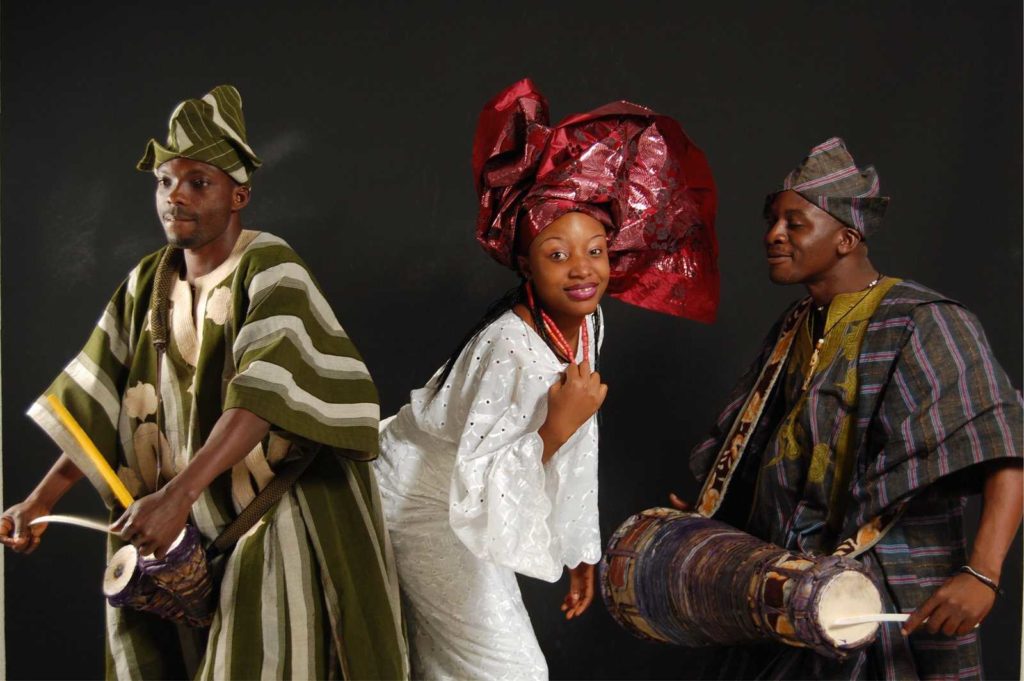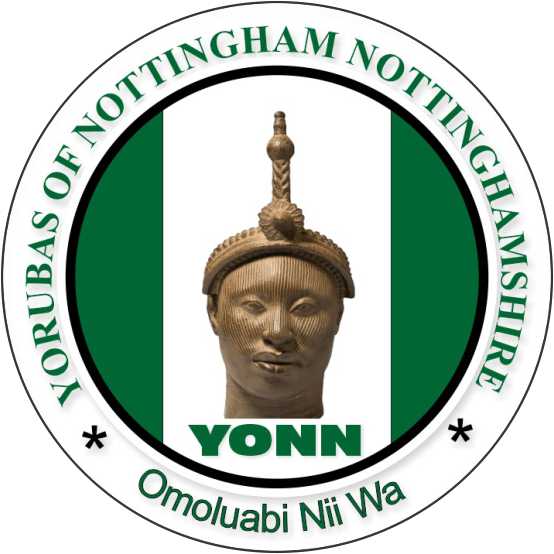The History and Culture of the Yorubas
History
The Yorubas originated from Ile-Ife, arose and became quite popular by their trading with the Portuguese, which gave them a large supply of guns.
However, they were unable to push back the Fulani who invaded them and pushed much of the Yoruba to the south.
In the late 1800s, the Yorubas formed a treaty with the Fulani and in 1901 they were colonised by the British. Because of their enmity with the Fulani who are the great Islamic evangelists, most of the Yoruba people do not hold to Islam but instead worship many of the gods and spirits that the Yoruba hold to.
One of the features that make Yoruba people unique is their tendency to form into large city groups instead of small village groups. The Yorubas are today one of the three main ethnic groups that make up Nigeria. They can also be found in neighbouring countries.

Culture and Religion
The Yorubas are a large ethno-linguistic group or ethnic nation in Africa, and the majority of them speak the Yoruba language. The Yoruba language has an extensive literature of poetry, short stories, myths, and proverbs.
The Yorubas have developed a variety of different artistic forms including pottery, weaving, beadwork, metalwork, and mask making.
Most of the artworks were made to honour the gods and ancestors and since there are more than 401 known gods to the Yoruba there is much sculpture and artwork made.
The traditional Yoruba religion has an elaborate hierarchy of deities, including a supreme creator and some 400 lesser gods and spirits, most of whom are associated with their own cults and priests. However, many Yorubas are now Christians or Muslims.
Major towns and cities
The Yorubas live mostly in South-West Nigeria. Traditionally, the Yorubas organised themselves into networks of related villages, towns, and kingdoms; with most of them headed by an Oba (King) or Baale (a nobleman or mayor). Major Yoruba cities and towns include Ile-Ife, Ibadan, Lagos, Ijebu Ode, Abeokuta, Akure, Ilorin, Ijebu-Igbo, Ogbomosho, Ondo, Badagry, Ado-Ekiti, Osogbo, Ilesa, Oyo, Owo, Kabba, Offa, Ilesa, Ilobu, Ede etc. There are other Yoruba cities and towns such as Ketu, Sabe, Dassa and others in Republic of Benin.
There are other towns and cities with historical affiliation with the Yorubas because they share one or more similarities together. Some of these cities and towns are Benin city, Warri, Auchi, Okene etc.
The Yorubas are the main ethnic group in the states of Ekiti, Lagos, Ogun, Ondo, Osun, and Oyo, which are subdivisions of Nigeria; they also constitute a sizable proportion of Kwara and Kogi States as well as Edo State.
While the majority of the Yorubas live in western Nigeria, there are also substantial indigenous Yoruba communities in Benin, Ghana, Togo, and the Caribbean.


The Yorubas in Diaspora
During the decline of the Oyo Empire, Yorubaland degenerated into a series of civil wars, in which military captives were sold into the slave trade. Most of the slaves that were exported as a result of the civil wars were sent to Haiti, Cuba, Puerto Rico, Brazil, and Trinidad, bringing with them Yoruba religious beliefs.
A significant percentage of Africans enslaved during the Transatlantic Slave Trade in the Americas managed to maintain the Yoruba spiritual religion known as Aborisha.
Indeed, the initiation and practice of Aborisha spiritual religion offers a route to all people of African descent, who were victims of slave trade in the Americas or the Caribbean, to make claim to Yoruba heritage.

Yoruba Language in Diaspora
Some foreign countries where Yoruba languages is spoken include Togo, Benin Republic, Sierra Leone, Liberia, Ghana, Gambia, North America, United Kingdom, Europe, The Caribbean Islands and Brazil.
Yoruba is the most widely spoken language outside Nigeria and Africa. It’s been estimated that there are over 40 million Yoruba primary and secondary language speakers across the globe.
These Yoruba speakers are found in Togo and Benin Republic. Smaller Yoruba-speaking communities are located in Sierra Leone, Liberia, Ghana, and Gambia.
It has also spread to North America, the United Kingdom, Europe, the Caribbean Islands and Brazil where it is alleged that Yoruba could become one of their official languages.
